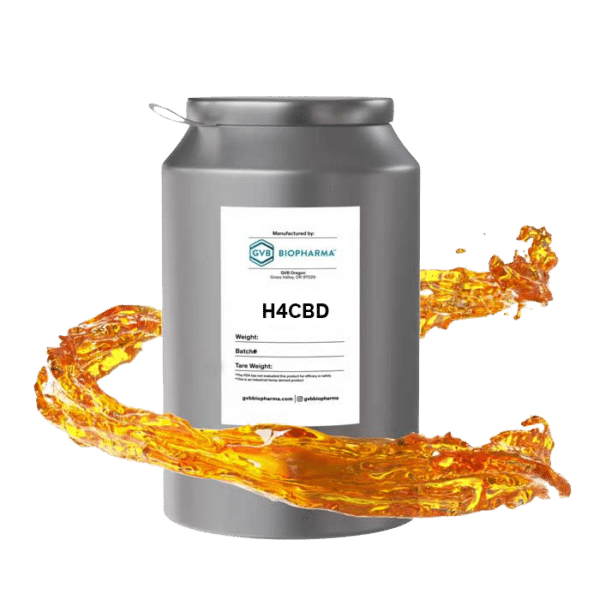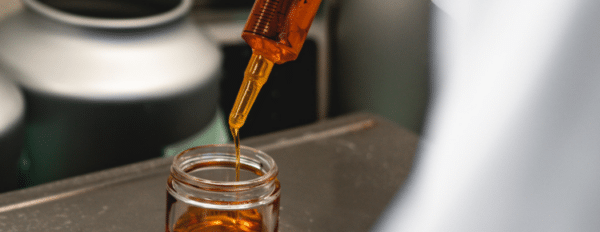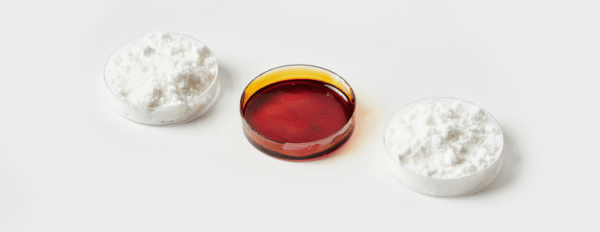With some sources boasting that it is 100 times more effective than CBD, it’s no wonder that the hydrogenated cannabinoid, H4CBD, has been getting a lot of attention recently.(1) In this guide, we’ll examine H4CBD from every possible angle and explain how to find the best H4CBD products available on the market. Dive into our in-depth guide to H4CBD: what It is, what it does, and how it compares to CBD.
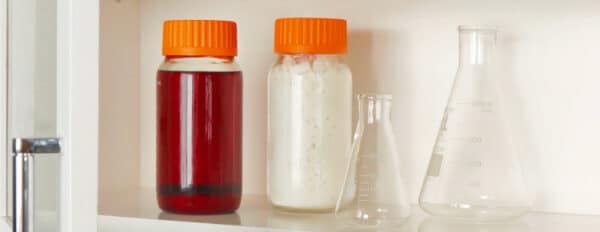
What is H4CBD?
Hexahydrocannabidiol (H4CBD) is a synthesized cannabinoid, created by converting the two carbon-carbon double bonds in the limonene part of CBD to single bonds via the addition of four hydrogen atoms. This process, known as hydrogenation, is very similar to that used to make margarine from vegetable oil.
What does H4CBD do?
The exact properties of H4CBD remain largely unknown, The limited information available on this cannabinoid indicates that it has a considerably higher affinity for your brain’s CB1 neuroreceptors than conventional CBD. Since CBD normally does not have any direct affinity for CB1 receptors, it is unclear what to make of this data. Nonetheless, people who use H4CBD generally report that it feels like CBD, but with considerably higher psychoactivity.
Is H4CBD the same thing as CBD?
No. H4CBD and conventional CBD share many similarities, but they are not exactly the same molecule. These two cannabinoids offer completely different experienced effects. Also, from its chemical structure down to its method of procurement, CBD is fundamentally different from H4CBD.
H4CBD vs. CBD
How exactly do CBD and H4CBD compare when examined side-by-side? Discover the differences and similarities between these cannabinoids across the seven categories below:
Source
Both CBD and H4CBD come from hemp. While CBD is a direct hemp derivative, H4CBD is artificially modified, via hydrogenation, to reach its final form.
As a result, H4CBD must technically be considered a synthetic cannabinoid, even if it is only as synthetic as margarine. It’s technically possible to synthesize CBD as well. However, this cannabinoid is so abundant in hemp that there is no incentive to produce it synthetically.
Structure
H4CBD has been structurally altered to be slightly different from CBD. To transform CBD to H4CBD, four additional hydrogen atoms have been added to the limonene head of the molecule, replacing two carbon-carbon double bonds with single bonds, and, thereby, changing its shape and inherent properties.
Effects
Due to the results of a single study from 2006, there’s widespread speculation that H4CBD may be as much as 100 times more potent than CBD — at least in certain ways. The study in question found that hydrogenated forms of CBD showed surprisingly high affinity for the brain’s CB1 neuroreceptors.¹
The level of affinity was nowhere near as high as is observed in the case of THC, but it was, nonetheless, notable. While a 2017 research review echoed this opinion, no new studies into the bioactive or psychoactive properties of H4CBD have been conducted recently.²
Anecdotally, H4CBD users have noted that using this cannabinoid feels something like taking a 2:1 CBD:THC product. The familiar, non-intoxicating effects of CBD are still dominant. There’s also a slight sense of intoxication that might help take the edge off or make the effects of CBD more enjoyable.
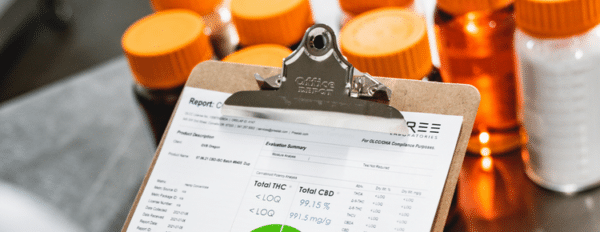
Potency
Overall, it would be safe to say that H4CBD might offer something in the range of three times the potency of CBD. It’s been claimed that H4CBD offers 100 times the potency of normal CBD. Even if that’s the case, CBD’s potency at your CB1 receptors is negligible, at best.
In mathematical terms, if you take a tiny number and multiply it by a hundred, you’re still left with a tiny sum. The potentially increased activity of H4CBD at your CB1 receptors certainly appears to be worth further investigation. At present, it is unknown whether H4CBD is “100 times more effective” than CBD in every area that CBD affects.
Legality
The legality of cannabinoids — both synthesized and natural — is currently a matter of considerable dispute. Overall, cannabinoids that are not delta-9 tetrahydrocannabinol are considered industrial hemp under the 2018 Farm Bill. Beyond this, the FDA has yet to produce meaningful regulations to help guide the rapidly growing online cannabinoid industry. Continue checking this space for updates as they emerge.
Availability
Between the two, CBD is currently by far the more widely available cannabinoid. Demand for H4CBD is rapidly growing and will naturally lead to the development of a wider array of products. Already, high-quality H4CBD distillates, isolates, and finished products are starting to appear online, heralding the beginning of a brand-new hemp renaissance.
How to choose the best H4CBD source
With H4CBD being such a new cannabinoid, it’s essential that you choose a source of H4CBD products that has an established reputation for excellence. The right H4CBD manufacturer will be well-established and have an excellent reputation for reliability, purity, and customer service.
Their facilities will be professionally certified and fully compliant with the lastest regulations. You should be offered a choice between pre-formulated and custom-formulated products. The best H4CBD company for your needs will assign a customer support specialist to guide you through the entire process to ensure your complete satisfaction, from start to finish.v
The bottom line: Is H4CBD better than CBD?
Scientists have known about H4CBD since the 1940s, but it’s only recently that this hydrogenated form of CBD entered the spotlight.³ As CBD has reached heights of popularity no one previously thought possible, demand for alternatives that might offer even-better benefits has arisen along with it.³
Is H4CBD truly the dark horse that will supplant CBD as the dominant option on the market? Since CBD is so beloved and abundant, it’s unlikely. If it’s true that H4CBD is more potent than conventional CBD in certain ways, it will certainly carve out a niche that requires new products.
H4CBD and CBD may have distinct differences, but consider their collective benefits: CBD could be the traditional, lower-strength, all-natural option while H4CBD would serve as the slightly-tweaked, higher-potency alternative. As the modern cannabinoid pharmacopeia continues to evolve, both CBD and H4CBD will certainly play pivotal roles.
H4CBD FAQs
1. What are hydrogenated cannabinoids?
A hydrogenated cannabinoid is a cannabinoid that has been subjected to hydrogenation, a process that adds hydrogen atoms to molecules. Many cannabinoids can be hydrogenated, and in most cases, it’s possible to hydrogenate each cannabinoid with different quantities of hydrogen atoms at different molecular locations. Every hydrogenated cannabinoid has unique properties. But in most cases, the chemical hydrogenation of a cannabinoid typically increases its potency.
2. Is H4CBD synthetic?
Yes, H4CBD is technically synthetic. Keep in mind that this hydrogenated cannabinoid has not been artificially constructed from scratch or combined with any complicated substances. Nonetheless, any alteration in a natural compound is considered a synthetic form of the original. Also, synthesized versions of substances almost always have new and unique properties.
3. Is H4CBD 100 times stronger than CBD?
The claim that H4CBD is 100 times stronger than conventional CBD is more hype than it is fact. Based on a single, unreplicated study from more than 15 years ago, scientists now speculate that H4CBD may demonstrate remarkably increased activity compared to CBD — but at the nervous system’s CB1 receptors, not the main targets of conventional CBD.
Normally, CBD has very little affinity for CB1 and may even reduce its activity. While CBD acts to potentiate the effects of endogenous cannabinoids, it acts to oppose THC’s interaction with CB1. It is a modulator of THC’s psychoactive effects. As a result of hydrogenation, H4CBD acquires a measurable affinity for CB1, making the synthetic cannabinoid more psychoactive.
4. Does H4CBD get you high?
It wouldn’t be quite accurate to say that H4CBD gets you high. Still, this cannabinoid certainly doesn’t provide the effects you usually associate with CBD, either. Based on limited preliminary research and anecdotal testimony, it appears that taking H4CBD feels like taking a big dose of CBD alongside a small dose of THC. As anyone who has ever combined the two cannabinoids knows, CBD has a tendency to drown out THC without completely eliminating its effects.
5. Is H4CBD the same thing as HHC?
No, H4CBD and HHC are different. Based on their origins, it’s natural to get the two cannabinoids confused. Just as H4CBD is a hydrogenated form of CBD, HHC is a hydrogenated form of THC. While H4CBD is believed to show greater activity at the CB1 receptors than CBD, HHC is generally believed to actually be somewhat weaker than conventional THC. Both examples show how hydrogenation can make modulate the potency of a substance.
6. Are there strains with H4CBD?
No, there are no strains of cannabis or hemp containing H4CBD because this cannabinoid is not naturally occurring. Since it is not possible to extract natural H4CBD, this cannabinoid can only be made artificially.
7. What is the best type of H4CBD product?
So far, users generally seem to prefer H4CBD vapes and gummies. Over time, we expect H4CBD capsules, tablets, and, even, topicals to also come into high demand. Whichever type of product you choose, H4CBD products should contain simple ingredients and be accompanied by thorough lab reports.
8. What are some common H4CBD effects?
Based on what little we know so far, it appears that H4CBD has roughly the same effects as CBD. Some evidence suggests that this synthetic derivative of CBD may be more effective at certain neuroreceptors. These neuroreceptors are not, however, commonly associated with the effects of CBD. Due to a continuing lack of research, not enough is known about H4CBD to say anything definitive regarding its effects.
9. What is H4CBD distillate?
H4CBD distillate consists of H4CBD combined with a “denatured” hemp distillate, from which other cannabinoids have been removed. Rare cannabinoids like H4CBD are often offered in distillate form since it is easy to combine a distillate base with practically any isolated cannabinoid.
H4CBD must be produced as a derivative of a natural hemp cannabinoid, making H4CBD distillate an inherently synthetic product. Even though its dominant cannabinoid is synthetic, H4CBD distillate still looks like you’d expect a distillate to look — honey-colored, viscous, and translucent.
10. What is the difference between CBD and H4CBD?
The primary difference between CBD and H4CBD is that CBD is natural while H4CBD is not. The dissimilarities don’t end there. It’s also an indisputable fact that we know far less about H4CBD than we do about conventional CBD — though there’s still plenty left to learn about both cannabinoids.
11. H4CBD gummies vs. H4CBD tinctures
Out of the two products, H4CBD tinctures are more likely to be simple and natural while H4CBD gummies might taste better or be easier to use. All new cannabinoids go through a transitional, scale-up period before many high-quality product sources become readily available.
As a result, it’s prudent to do plenty of research into how H4CBD gummies or tinctures are made before making any type of commitment. The H4CBD market is just beginning to emerge. It may take some time until competition and production systems drive product quality up to standard acceptable levels.
References
- 1. Ben-Shabat, S., Hanuš, L. O., Katzavian, G., & Gallily, R. (2006, January 6). New Cannabidiol Derivatives: Synthesis, Binding to Cannabinoid Receptor, and Evaluation of Their Antiinflammatory Activity. Journal of Medicinal Chemistry, 49(3), 1113–1117. Retrieved from https://pubs.acs.org/doi/10.1021/jm050709m
- 2. Morales, P., Reggio, P. H., & Jagerovic, N. (2017, June 28). An Overview on Medicinal Chemistry of Synthetic and Natural Derivatives of Cannabidiol. Frontiers in Pharmacology, 8. Retrieved from https://www.frontiersin.org/articles/10.3389/fphar.2017.00422/full
- 3. Jacob, A., & Todd, A. R. (1940). 119. Cannabis indica. Part II. Isolation of cannabidiol from Egyptian hashish. Observations on the structure of cannabinol. Journal of the Chemical Society (Resumed), 649. Retrieved from https://pubs.rsc.org/en/content/articlelanding/1940/JR/jr9400000649
- 4. Laprairie, R. B., Bagher, A. M., Kelly, M. E. M., & Denovan-Wright, E. M. (2015, October). Cannabidiol is a negative allosteric modulator of the cannabinoid CB1 receptor. British Journal of Pharmacology, 172(20), 4790–4805. Retrieved from https://bpspubs.onlinelibrary.wiley.com/doi/10.1111/bph.13250

